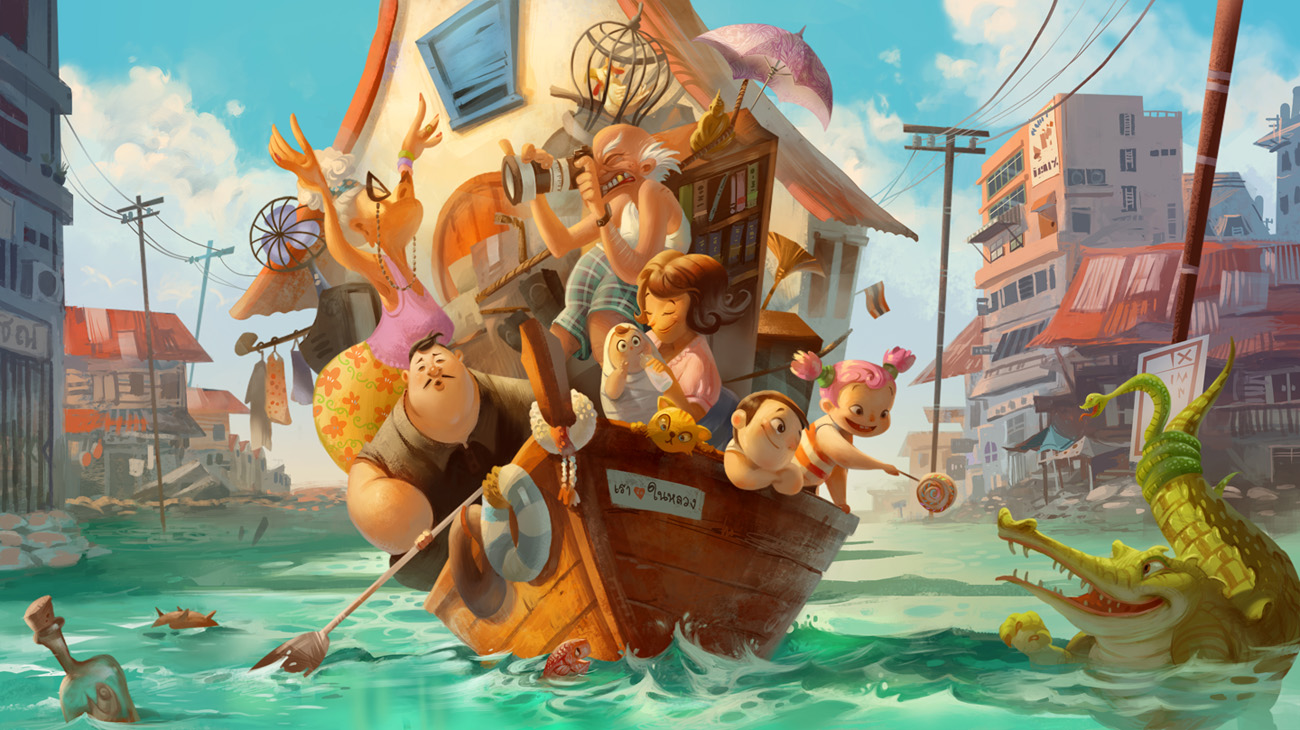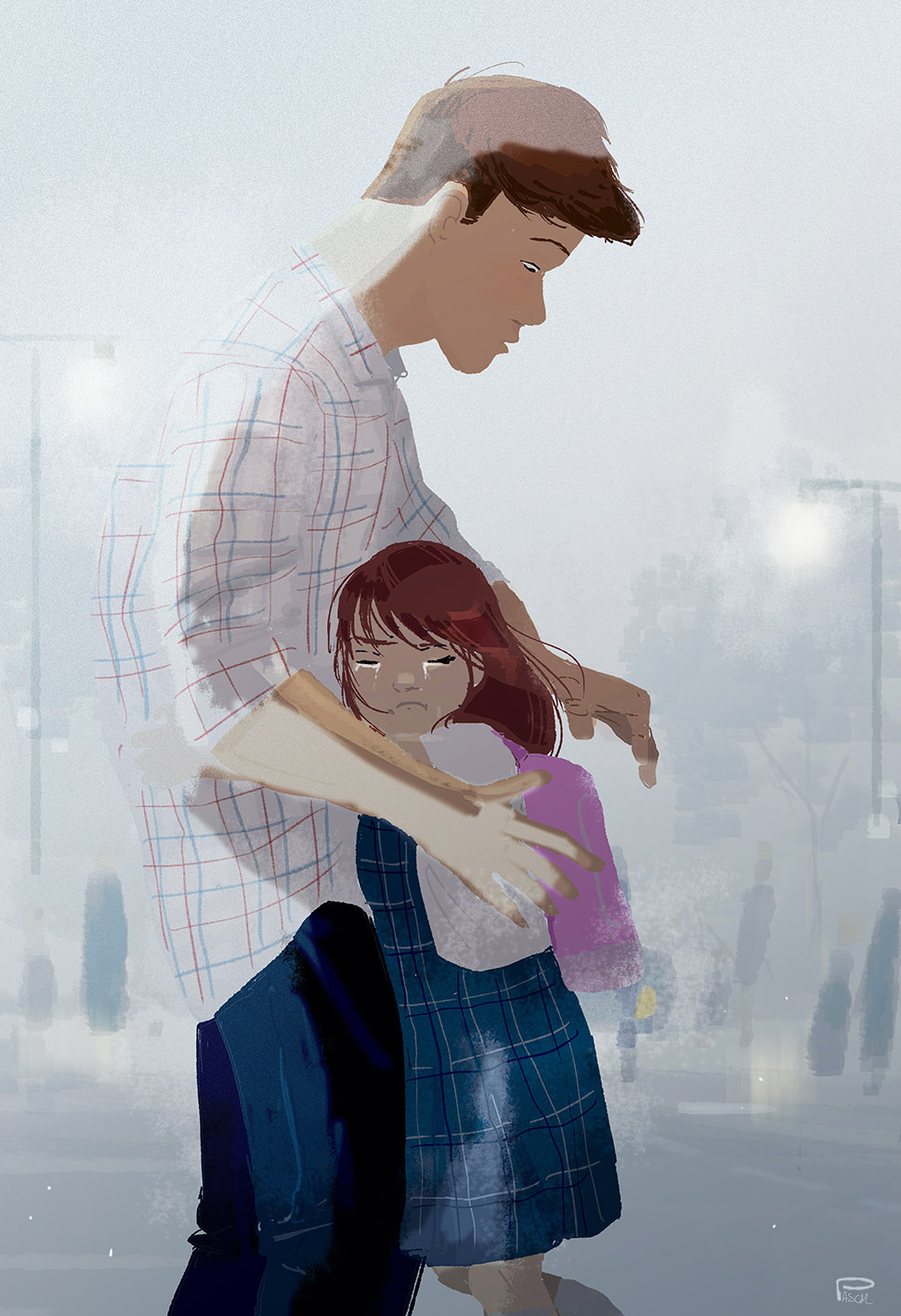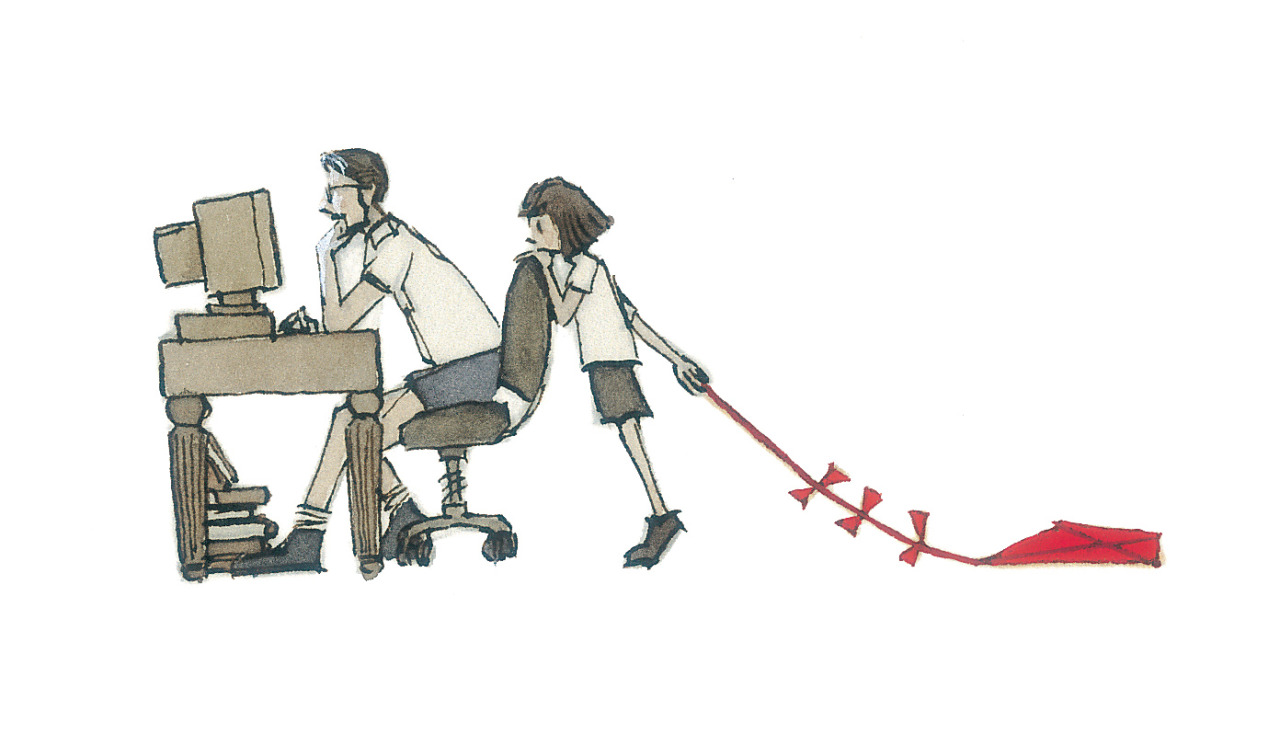This passage (paragraph 11) best supports which of the following inferences?
I can hear Lupe now. "Stop putting yourself down. You have a very pretty face. Besides, you have a lot more going for you." Yeah, well, I guess that's true. I mean, I am smart and funny, and I know I'm a good person. But this is high school, and nobody seems to care about that. Why couldn't I be tall and elegant like Diondra, or have Judianne's perfect complexion, all smooth, super-rich fudge? Better yet, why couldn't I look like Tanisha, or Gloria? Then I might have a chance with somebody like Devon. But I don't, so forget it.
A. Janelle knows she is smart, but she thinks that it is more important to be beautiful.
B. Janelle mostly wishes she could look different because her classmates place so much importance on looks.
C. Janelle is tired of Lupe always repeating herself and wants to become friends with girls like Tanisha and Gloria.
D. Everyone thinks Janelle is beautiful, but she is just too self-conscious to realize it.
B. Janelle mostly wishes she could look different because her classmates place so much importance on looks.
What is the term?
To win or attain by artful or skillful maneuvers
Snare
What is the term?
refers to the type of narration used by whoever is telling the story (as in first-, second-, or third-person narration).
Point of View
What is the term?
an idea formed by combining textual evidence and one’s own reasoning and background knowledge
Inference
What's the term?
a main point that an author makes about a topic
Central Idea
Based on the passage (paragraph 13), which of the following best explains how Janelle feels when she is performing poetry?
I can't believe I'm getting up in front of people and talking about personal stuff, and liking it. I'm saying things that I would never tell anybody, usually. But, I don't know. There's something about reading poetry. It's almost like acting. The room is kind of set up like a stage, anyway. Mr. Ward turns most of the lights out, and we stand in a spot in front of the video camera. Once he switches it on, it's like you become somebody else, and you can say anything, as long as it's in a poem. Then, when you're finished, you just disappear into the dark and sit down, and you're back to being your own self. Gloria says it's the same for her.
A. Janelle enjoys the attention because usually she feels completely ignored by everyone.
B. Janelle feels like she is part of a community because she, Gloria, and the other student poets all feel the same about performing.
C. Janelle likes reading poetry, but she feels alienated and frightened when she has to do it in front of people.
D. Janelle feels less self-conscious and more free because it’s like she is performing as someone else when she reads her poetry.
D. Janelle feels less self-conscious and more free because it’s like she is performing as someone else when she reads her poetry.
What is the term?
The natural color, texture, and appearance of a person's skin, especially of the face
Complexion
What is the term?
The character, or voice, telling a story
Narrator
What is the term?
details from the text that a reader can use to support his or her ideas and opinions about the text
Textual Evidence
True or False
Central ideas can be stated or implied.
True
Which inference about Devon’s feelings is best supported by the text?
A. Devon is suspicious of Janelle because she is always in the library at the same time as him.
B. Devon is grateful that Janelle always saves a spot for him in the library.
C. Devon has a crush on Janelle, but he doesn’t want her to know it.
D. Devon looks up to Janelle because she doesn’t hide her intelligence.
D. Devon looks up to Janelle because she doesn’t hide her intelligence.
What is the term?
Books forming part of a work or series
Volumes
What is the term?
a character’s particular attitude toward or way of regarding something.
Perspective

What can you infer about this image?
They are evacuating from a flood.
True or False
Authors develop central ideas by using support, such as facts, definitions, concrete details, and quotations.
True
Which of the following inferences is best supported by the text?
A. Devon likes Janelle, but he doesn’t want to be seen talking to her.
B. Devon goes to the library so often because he wants to impress Janelle.
C. Devon is embarrassed that people make fun of him for reading, but he knows they aren’t justified.
D. Devon reads a lot, but he plans to stop because it takes too much time away from basketball.
C. Devon is embarrassed that people make fun of him for reading, but he knows they aren’t justified.
What is the term?
Telling someone about a secret or private matter while trusting them not to repeat it to others
Confide
Reread paragraph 7 of the story (narrated by Devon). Then, answer the question. This question has two parts. First, answer Part A. Then, answer Part B.
From Bronx Masquerade by Nikki Grimes
7 The other day, I duck into the library, snare a corner table, and hunker down with 3000 Years of Black Poetry. Raynard sees me, but it’s not like he’s going to tell anybody. He hardly speaks, and he never hangs with any of the brothers I know. So I breathe easy. I’m sure no one else has spotted me until a head pops up from behind the stacks. It’s Janelle Battle from my English class. I freeze and wait for the snickers I’m used to. Wait for her to say something like: "What? Coach got you reading now? Afraid you’re gonna flunk out and drop off the team?" But all she does is smile and wave. Like it’s no big deal for me to be in a library reading. Like I have a right to be there if I want. Then she pads over, slips a copy of The Panther & the Lash on my table, and walks away without saying a word. It’s one of my favorite books by Langston Hughes. How could she know? Seems like she’s noticed me in the library more often than I thought.
In paragraph 7, how does the narration from Devon’s point of view reveal a particular perspective he has about himself?
A. The narration shows that Devon is proud that he likes to read and doesn’t care what others think.
B. The narration shows that Devon doesn’t care about anyone else’s opinion.
C. The narration shows that Devon hates reading.
D. The narration shows that Devon is embarrassed that he likes to read and thinks others will make fun of him.
D. The narration shows that Devon is embarrassed that he likes to read and thinks others will make fun of him.

What can you infer?
The dad is dropping his daughter off at school.
From “I Never Had It Made” by Jackie Robinson
9 There was more than just making money at stake in Mr. Rickey’s decision. I learned that his family was afraid that his health was being undermined by the resulting pressures and that they pleaded with him to abandon the plan. His peers and fellow baseball moguls exerted all kinds of influence to get him to change his mind. Some of the press condemned him as a fool and a demagogue. But he didn’t give in.
10 In a very real sense, black people helped make the experiment succeed. Many who came to the ball park had not been baseball fans before I began to play in the big leagues. Suppressed and repressed for so many years, they needed a victorious black man as a symbol. It would help them believe in themselves. But black support of the first black man in the majors was a complicated matter. The breakthrough created as much danger as it did hope. It was one thing for me out there on the playing field to be able to keep my cool in the face of insults. But it was another for all those black people sitting in the stands to keep from overreacting when they sensed a racial slur or an unjust decision. . . . I learned from Rachel, who had spent hours in the stands, that clergymen and laymen had held meetings in the black community to spread the word. We all knew about the help of the black press. Mr. Rickey and I owed them a great deal.
11 Children from all races came to the stands. The very young seemed to have no hangup at all about my being black. They just wanted me to be good, to deliver, to win. The inspiration of their innocence is amazing. I don’t think I’ll ever forget the small, shrill voice of a tiny white kid who, in the midst of a racially tense atmosphere during an early game in a Dixie town, cried out, “Attaboy, Jackie.” It broke the tension and it made me feel I had to succeed.
Which statement best expresses the central idea of paragraph 9?
A. Mr. Rickey’s choice to draft Robinson was risky for both the team and for himself.
B. Robinson trusted Mr. Rickey and hoped that his health would not decline because of baseball.
C. Mr. Rickey wished his peers would understand and support his decision to sign Robinson.
D. Mr. Rickey’s family worried about his health and wished he would end his plan.
A. Mr. Rickey’s choice to draft Robinson was risky for both the team and for himself.
How does this passage (paragraph 9) mainly add to the development of the text?
I woke up this morning
exhausted from hiding
the me of me
so I stand here confiding
there’s more to Devon
than jump shot and rim.
I’m more than tall
and lengthy of limb.
I dare you to peep
behind these eyes,
discover the poet
in tough-guy disguise.
Don’t call me Jump Shot.
My name is Surprise.
A. It illustrates that Devon is confused and feels like he doesn’t know himself very well.
B. It suggests that Devon is no longer hiding the things that are most important to him.
C. Devon thinks people don’t appreciate that he is very creative and surprising on the basketball court.
D. It introduces the idea that Devon feels like people would see him differently if he could change his name.
B. It suggests that Devon is no longer hiding the things that are most important to him.
What is the term?
To take the time to do something
Bother
Reread paragraph 7 of the story (narrated by Devon) and paragraph 12 of the story (narrated by Janelle). Then, answer the question. This question has two parts. First, answer Part A. Then, answer Part B.
From Bronx Masquerade by Nikki Grimes
7 The other day, I duck into the library, snare a corner table, and hunker down with 3000 Years of Black Poetry. Raynard sees me, but it’s not like he’s going to tell anybody. He hardly speaks, and he never hangs with any of the brothers I know. So I breathe easy. I’m sure no one else has spotted me until a head pops up from behind the stacks. It’s Janelle Battle from my English class. I freeze and wait for the snickers I’m used to. Wait for her to say something like: "What? Coach got you reading now? Afraid you’re gonna flunk out and drop off the team?" But all she does is smile and wave. Like it’s no big deal for me to be in a library reading. Like I have a right to be there if I want. Then she pads over, slips a copy of The Panther & the Lash on my table, and walks away without saying a word. It’s one of my favorite books by Langston Hughes. How could she know? Seems like she’s noticed me in the library more often than I thought.
From Bronx Masquerade by Nikki Grimes
12 Devon is different from the other jocks, though. How many guys you know read Claude McKay for fun? Seems like every time I go to the library, I catch him squeezed into a corner like he's got something to hide. He smiled at me last time I saw him there. That's something, isn't it? He didn't have to smile, even if I did smile and wave first. And he seemed to like the poem I read at the last Open Mike Friday.
In paragraph 12, how does the narration from Janelle’s point of view influence our understanding of Devon in a way that differs from how he presents himself in paragraph 7?
A. Janelle’s narration helps the reader understand that no one thinks Devon is cool.
B. Janelle’s narration helps the reader understand that no one thinks Devon is smart.
C. Janelle’s narration helps the reader understand that Devon doesn’t need to be ashamed of liking to read because Janelle thinks he is special.
D. Janelle’s narration helps the reader understand that Devon should be ashamed of liking to read because Janelle thinks he is like all of the other jocks.
C. Janelle’s narration helps the reader understand that Devon doesn’t need to be ashamed of liking to read because Janelle thinks he is special.

What can you infer?
The dad is busy working and the daughter wants him to fly a kite with her.
From “I Never Had It Made” by Jackie Robinson
9 There was more than just making money at stake in Mr. Rickey’s decision. I learned that his family was afraid that his health was being undermined by the resulting pressures and that they pleaded with him to abandon the plan. His peers and fellow baseball moguls exerted all kinds of influence to get him to change his mind. Some of the press condemned him as a fool and a demagogue. But he didn’t give in.
10 In a very real sense, black people helped make the experiment succeed. Many who came to the ball park had not been baseball fans before I began to play in the big leagues. Suppressed and repressed for so many years, they needed a victorious black man as a symbol. It would help them believe in themselves. But black support of the first black man in the majors was a complicated matter. The breakthrough created as much danger as it did hope. It was one thing for me out there on the playing field to be able to keep my cool in the face of insults. But it was another for all those black people sitting in the stands to keep from overreacting when they sensed a racial slur or an unjust decision. . . . I learned from Rachel, who had spent hours in the stands, that clergymen and laymen had held meetings in the black community to spread the word. We all knew about the help of the black press. Mr. Rickey and I owed them a great deal.
11 Children from all races came to the stands. The very young seemed to have no hangup at all about my being black. They just wanted me to be good, to deliver, to win. The inspiration of their innocence is amazing. I don’t think I’ll ever forget the small, shrill voice of a tiny white kid who, in the midst of a racially tense atmosphere during an early game in a Dixie town, cried out, “Attaboy, Jackie.” It broke the tension and it made me feel I had to succeed.
Which statement best expresses the central idea of the whole passage (paragraphs 9–11)?
A. Jackie Robinson was a talented baseball player who was supported by Mr. Rickey.
B. Jackie Robinson greatly appreciated the encouragement of his peers while with the Dodgers.
C. Jackie Robinson received support from Mr. Rickey, the black community, and children.
D. Jackie Robinson wished that he had more assistance from the white community.
C. Jackie Robinson received support from Mr. Rickey, the black community, and children.